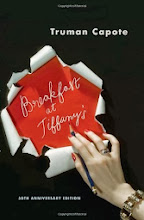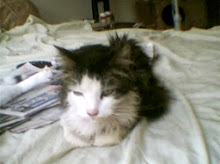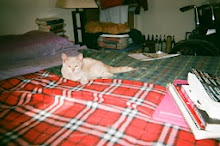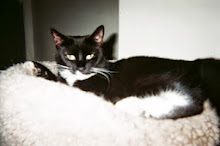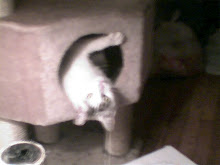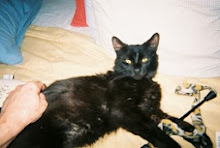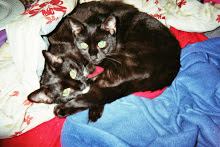A Friend of
the Family by Lauren Grodstein
Publisher:
Algonquin Paperbacks
Published:
November 9, 2010
ISBN:
978 - 1565129160
Pages:
320
Rating:
4.5 out of 5
Book Summary: Pete Dizinoff has spent his whole life
working toward an adulthood that would be, by all measures, judged successful.
And in nearly every way, he's accomplished just that: A skilled and intuitive
internist with a loyal following of patients, he's built a thriving medical
practice in Round Hill, New Jersey. He has a loving and devoted wife, a network
of close friends, a comfortable suburban status, an impressive house, a good
view from the porch. And most of all, he has a son, for whom he wants only the
best. Pete and his wife, Elaine, have only one child, and Pete has pinned his
hopes on Alec. They've afforded him every opportunity, bailed him out of close
calls with the law, and, despite Alec's lack of interest, even managed to get
him accepted by a good college.
But Pete
never counted on the wild card: Laura, his best friend's daughter. Ten years
older than Alec, irresistibly beautiful, with a history so shocking that it's
never spoken of, Laura sets her sights on Alec, who falls under her spell. And
with that, Pete sees his dreams for his son not just unraveling but completely
destroyed. With a belief that he has only the best intentions, he sets out to
derail the romance. But he could not have foreseen how, in the process, he
might shatter his whole life and devastate his family.
A riveting
story of suburban tragedy in the tradition of The Ice Storm, American
Beauty, and Little Children,
Lauren Grodstein charts a father's fall from grace as he struggles to save his
family, his reputation, and himself.
My Thoughts: This is a fantastic, thought-provoking
book. Family relationships and the
complex job of parenting are the central issues. Specifically, Lauren Grodstein is asking
readers to think about whether or not parents can force their children to make
certain choices that will impact their future.
And how much control can parents exert over the choices their children
make? The answers to these questions aren’t easy and may depend on the specific
situation. In the case of Dr. Pete
Dizinoff, his wife, Elaine and son, Alec, there are some vital facts that need
to be known before answering these questions.
Peter
Dizinoff is the narrator of A Friend of
the Family. When the novel opens,
he’s not living in the house with Elaine and Alec anymore, but in the studio over
the garage where Alec used to live and paint (he’s a passionate artist). We don’t find out until the end what Pete’s
done to get himself expelled from his home. An unreliable narrator, he doesn’t trust the
readers and makes us wait until almost the end of the novel to find out both
what he’s done and what the malpractice suit is all about. Over the course of the novel, Pete tells us
about himself, Elaine and Alec, their best friends, Joe and Iris and their
daughter Laura, about his medical practice and living in Round Hill. While
narrating, Pete complains whines, judges, grandstands and brags. Oh, he also makes it clear he’s got a thing
for his best friend Joe’s wife, Iris!
Still, Pete
thinks he’s a nice guy. I’m not so sure
I agree. He’s arrogant and believes he
knows better than most people about what’s right. He’s very judgmental but because he keeps his
judgments to himself, he sees himself as a warm and generous guy. He's not particularly good at helping out the people close to him when they're in a bad spot. There was a time when Joe needed Pete's support. Pete wasn't comfortable with the situation so he ducked Joe and his phone calls for weeks. Pete's not good at listening
to others, either. He's in the midst
of a malpractice law suit in which a young woman died. Had Dr. Pete listened to her, paid
her a bit more attention rather than being distracted by his own life,
things may have turned out differently.
Peter didn’t
trust that young women. In much the same
way, he doesn’t fully trust Elaine or Alec because he believes he knows best.
He and Elaine have let Alec do what he wants for a long time. Alec, for instance, quit school to focus on
his art. His parents built a studio over the garage for him. Now Pete’s demanding Alec go to college. Alec doesn’t want to and Pete’s furious. He refuses to have a real conversation with
Alec, he simply yells at him and orders him around. I think Pete’s position would be more understandable
if he was worried about Alec’s future.
But Peter is worried about what neighbors, friends and colleagues will
say about him if his son, Alec doesn’t become a big success. Success and the opinion of people who know
him, especially people who live in and around the Dizinoff's upper-middle class
neighborhood, has become very important to Pete. It’s difficult to be sure what’s more
important to Pete: Alec or what people think of Pete.
Grodstein’s
writing style is compelling and engaging.
She had my attention from the first chapter and I became more absorbed
as the novel progressed. I enjoyed the periodic and subtle foreshadowing of
events She also makes some brilliant observations of life in the suburbs. She
showed a great knack for bringing the upper middle class suburb of Round Hill
to life and utterly relatable to anyone whose lived there. With the manicured lawns, tended gardens and
picket fences, with the impressive homes comes competition among the neighbors
and parents. Grodstein successfully
develops Peter Dizinoff into a character many readers will recognize from their
own lives, especially anyone who lived or lives in the suburbs. Readers may be
close to someone like Pete or he may be an acquaintance but it’s not uncommon
to know someone who worries, way too much, what friends and neighbors will
think of him because of his family’s behavior. Pete easily resembles men and women who live
in upper middle-class suburbs and play the game of “keeping up with the Joneses”. And the more successful Pete becomes the
more closed-minded and judgmental he is of others, even his best friends.
The one part
of this book I had some problems with was the ending. I didn’t think the behavior that gets Pete
kicked out of his house would be judged as harshly against him as it is by
Elaine, Alec and Pete’s best friends, Joe and Iris. It’s possible, I suppose, that part of what
they were upset with was Pete’s intrusiveness, his failure to stay out of Alec’s
life. Pete would have us believe he was
acting in Alec’s best interests but it seems more he was acting in his own interests. Maybe that’s what Pete’s family was condemning
more than the alleged behavior. And
maybe it was time for Pete to be judged after doing so much of it himself.
I highly
recommend this book. It would make a
great choice for a book club, too, as there’s plenty to discuss.





































